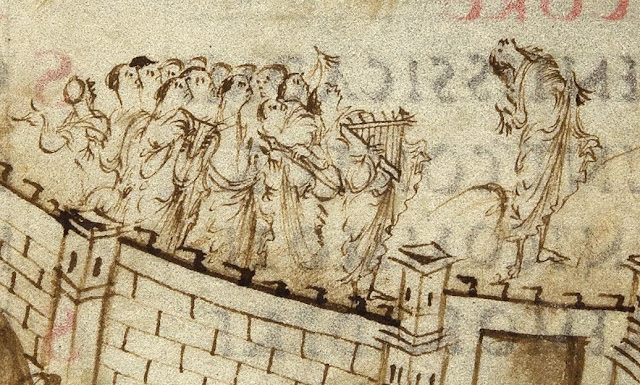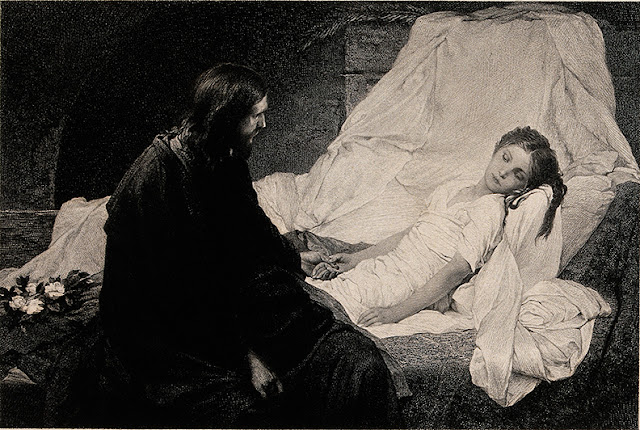 |
| Martyrdom of the seven Hebrew brothers, Vatican Library, around 1450 |
It is such a common idea these days to define someone's actions by their intentions rather than what they eat or wear or other such customs. Barclay reminds us how very unheard of that was in Jesus' day. I really enjoyed his references to Maccabees. Those books are some of my favorites of the Old Testament. The stories of the widow and her sons as well as one of an old man who refuses to give up his faith even though urged to because of his age are some that have really stuck with me. The speech that the old man and the widow each give are really beautiful examples of witnessing to faith.
Although it may not seem so now, this passage, when it was first spoken, was well-nigh the most revolutionary passage in the New Testament. Jesus has been arguing with the legal experts about different aspects of the traditional law. He has shown the irrelevance of the elaborate handwashings. He has shown how rigid adherence to the traditional law can actually mean disobedience to the law of God. But here he says something more startling yet. He declares that nothing that goes into a man can possibly defile him, for it is received only into his body which rids itself of it in the normal, physical way.
No Jew ever believed that and no orthodox Jew believes it yet. Leviticus 11 has a long list of animals that are unclean and may not be used for food. How very seriously this was taken can be seen from many an incident in Maccabean times. At that time the Syrian king, Antiochus Epiphanes, was determined to root out the Jewish faith. One of the things he demanded was that the Jews should eat pork, swine's flesh but they died in the hundreds rather than do so ... Fourth Maccabees (chapter 7) tells the story of a widow and her seven sons. It was demanded that they should eat swine's flesh. They refused. The first had his tongues cut out, the ends of his limbs cut off; and he was then roasted alive in a pan; the second had his hair and the skin of his skull torn off; one by one they were tortured to death while their aged mother looked on and cheered them on; they died rather than eat meat which to them was unclean.
It is in the face of this that Jesus made his revolutionary statement that nothing that goes into a man can make him unclean. He was wiping out at one stroke the laws for which Jews had suffered and died ...
With one sweeping pronouncement Jesus had declared ... that uncleanness has nothing to do with what a man takes into his body but everything to do with what comes out of his heart.
The Gospel of Mark
(The Daily Bible Series, rev. ed.)








_-_James_Tissot.jpg)









